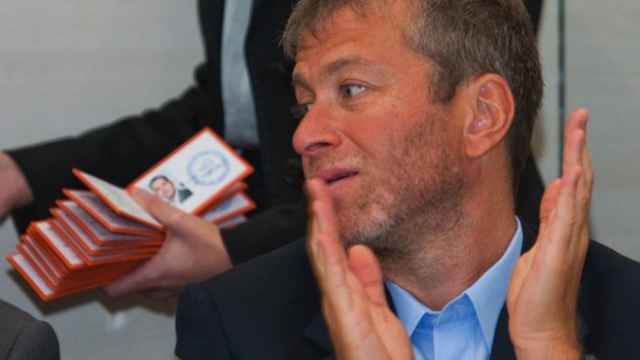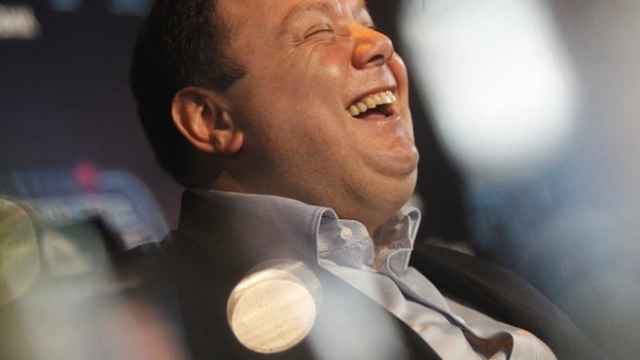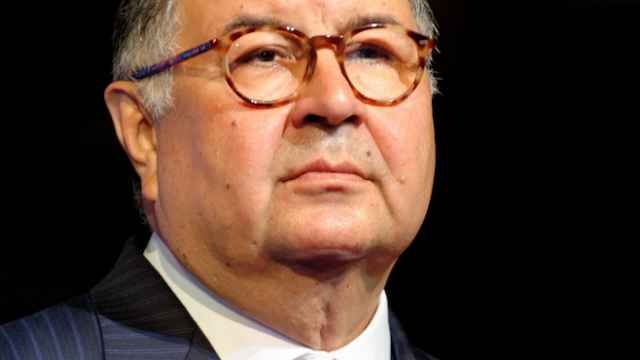VIENNA — An Austrian court refused on Thursday to extradite Ukrainian industrialist Dmytro Firtash to the United States, accepting his argument that political motivations lay behind U.S. efforts to try him on corruption charges.
One of Ukraine's most influential oligarchs, Firtash, 49, was arrested in Vienna a year ago at the request of U.S. authorities, which have been investigating him since 2006.
He was released from detention in March 2014 after posting bail of 125 million euros ($140 million).
The billionaire business magnate told the court that allegations he had conspired to bribe India government officials to win licenses to mine titanium were "absolutely untrue," and called himself victim of a political campaign.
"I have already expressed many times my confidence in the Austrian justice system. Today this confidence has proven to be justified," he said in a statement released by his lawyers.
Judge Christoph Bauer said U.S. officials had failed to make a sufficient case of any wrongdoing. He said Firtash could have his passport back and leave Austria, but he kept the bail in place until the ruling is legally binding.
That may take some time as prosecutors filed an appeal against the verdict. His attorneys said Firtash would remain in Vienna until the verdict was final.
A U.S. grand jury in 2013 indicted Firtash, along with a member of India's parliament and four others.
The detention of Firtash, whose business concerns in gas trading and chemicals thrived under Ukraine's ousted pro-Russian president Viktor Yanukovych, coincided with a sharp escalation in Ukraine's political crisis, which has pitted the West against Russia.
Firtash's legal team had argued that the criminal case intended to exert pressure on an influential man whom Washington saw as a representative of Russian interests in Ukraine and a disruptive factor in its politics.
They said the case should be thrown out on several grounds, including a lack of evidence or U.S. jurisdiction and the fact that charges against him were not crimes in Austria.
Firtash's lawyers traced a timeline in which they said he had aroused U.S. suspicions from 2004 by founding a venture with Russia's Gazprom to deliver gas to Ukraine. Firtash said he had acted as an honest broker to help end wrangling over prices.
His team cited leaked U.S. diplomatic cables expressing distrust of Firtash, and questioned why the U.S. extradition request was briefly withdrawn when the political tide in Ukraine seemed to be swinging toward the West, which could have made his detention "counterproductive."
Firtash, wearing a grey suit and red tie, followed the case attentively via interpreters who whispered into his ear.
A Message from The Moscow Times:
Dear readers,
We are facing unprecedented challenges. Russia's Prosecutor General's Office has designated The Moscow Times as an "undesirable" organization, criminalizing our work and putting our staff at risk of prosecution. This follows our earlier unjust labeling as a "foreign agent."
These actions are direct attempts to silence independent journalism in Russia. The authorities claim our work "discredits the decisions of the Russian leadership." We see things differently: we strive to provide accurate, unbiased reporting on Russia.
We, the journalists of The Moscow Times, refuse to be silenced. But to continue our work, we need your help.
Your support, no matter how small, makes a world of difference. If you can, please support us monthly starting from just $2. It's quick to set up, and every contribution makes a significant impact.
By supporting The Moscow Times, you're defending open, independent journalism in the face of repression. Thank you for standing with us.
Remind me later.





